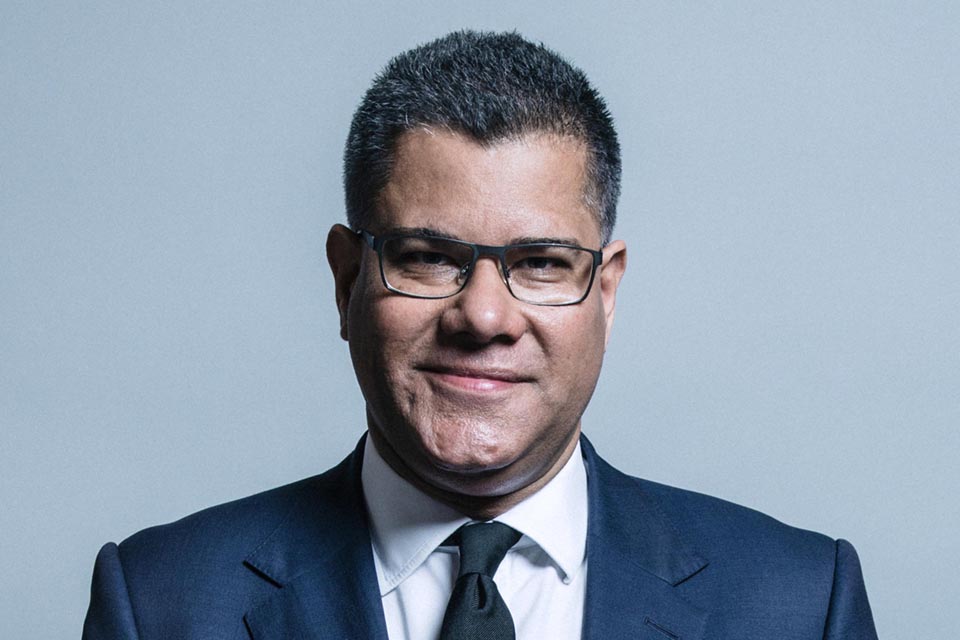Delivering for the most vulnerable to the effects of climate change at COP26
COP26 President Alok Sharma's video address at the World Humanitarian Forum, on the need to act now against the threat of climate change to ensure a sustainable, inclusive and resilient future.

Good morning.
Friends, it is a fact that those who have done the least to cause the climate crisis are suffering most from its effects.
Having been born in India, a proud British citizen, and having spent time as UK International Development Secretary, I am determined that COP26 will deliver for developing countries and for communities most vulnerable to climate change.
The situation we face is urgent and it is perilous.
So, COP26 must be the moment that every country, and every part of society, comes together, and embraces their responsibility, to protect our precious planet.
To achieve this, I have four goals as COP26 President.
First, to put the world on a path to driving down emissions, until they reach net zero by the middle of this century, to keep the 1.5 degree goal alive.
This means governments setting ambitious targets to reduce emissions.
And it means businesses, organisations and investors joining the Race to Zero campaign, this commits you to reach net zero by 2050 at the latest and to short-term targets to get there.
Second, we need to protect people and nature.
The climate is already changing, and it will continue to do so, even as we reduce emissions, and in some cases unfortunately with devastating impacts.
In my travels as COP26 President- Designate, I have met communities forced to desert their villages because of the effects, the ravages, of climate change.
I’ve seen farmers struggling to deal with the effects of a changing climate.
So we are urging countries to make adaptation plans, and supporting them to do so.
And we are asking businesses, investors, cities and civil society to join the Race to Resilience campaign to help strengthen the resilience of four billion people to climate change by 2030.
We must also deal with the vital issue of significantly increasing funding for adaptation, and that moves me on to our third goal, mobilising finance.
This underpins all climate action, and is vital if a green recovery from Covid-19 is to be truly global.
We are pressing developed countries to keep their obligations, and deliver on the $100billion, that have promised to support developing countries respond to the climate crisis.
This is our priority for our UK COP26 and G7 Presidencies.
We must also make finance easier to access and increase the sums available to protect people and nature.
In March, I brought together Ministers from 50 governments and multilateral institutions to address these issues, and we are focussed on delivering on the commitments made at that meeting, and we are working to increase the finance available to support climate action, such as by urging development banks to align with the Paris Agreement.
My fourth goal is all of us working together.
We are encouraging consensus between governments so that the negotiations in Glasgow are a success.
And we are building collaboration between governments, businesses and civil society to get the green transition moving faster.
We have established the COP26 Energy Transition Council for example, to support developing countries move to clean energy.
And we are co-hosting the Forest Agriculture and Commodity Trade Dialogue, with Indonesia, to protect forests and help farmers make a better living, and tackling deforestation, by making sustainable production pay.
Inclusion and participation cut across our COP26 Presidency, because we know historically marginalised communities, such as women, Indigenous Peoples, and young people, are some of the most affected by climate impacts, and that their knowledge, leadership, and expertise is absolutely essential to developing effective solutions.
As stewards of 80 percent of the world’s remaining biodiversity, Indigenous Peoples hold unique and precious knowledge.
So, we are amplifying the voices of civil society and historically marginalised groups, and bringing them into the heart of COP26.
We are hosting regional dialogues with Indigenous leaders to highlight their leadership in nature based solutions.
And I have committed to meet personally with youth and civil society climate activists in every country I visit.
And the UK’s COP26 Presidency has established the Civil Society and Youth Advisory Council to help shape the Summit.
This group includes brilliant young climate leaders from countries such as India and Kenya.
We are also supporting a mentoring initiative to help women from a diverse range of backgrounds participate in climate negotiations, and urging all countries to live up to their commitments and place gender equality at the centre of climate action.
Friends, we all have a part to play in tackling the crisis before us.
From business, investors and organisations committing to reduce emissions.
To civil society building support for ambitious policy and amplifying the voices that must be heard.
So in this vital year for climate action, this year of COP26, let’s come together, deliver for developing countries, and put the world on a path to a resilient, net zero world.
Thank you.